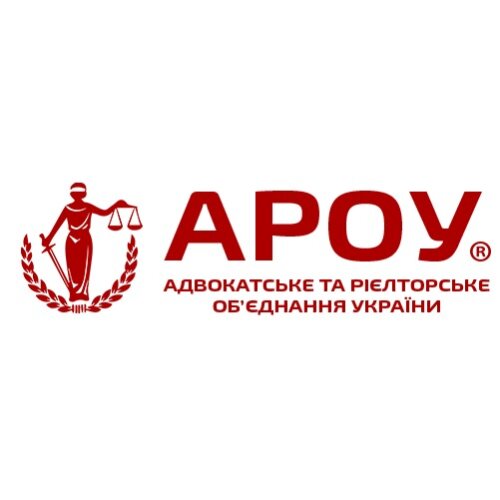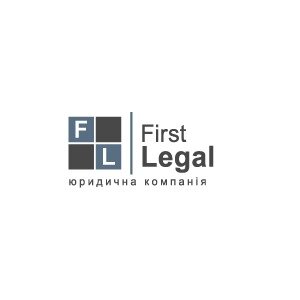Best Private Equity Lawyers in Ukraine
Share your needs with us, get contacted by law firms.
Free. Takes 2 min.
Or refine your search by selecting a city:
List of the best lawyers in Ukraine
About Private Equity Law in Ukraine
Private Equity law in Ukraine concerns the legal and regulatory environment for private investment in Ukrainian businesses that are not publicly traded. The private equity (PE) sector in Ukraine has grown considerably over the past two decades, fueled by both domestic and foreign investors seeking opportunities in an emerging market with growth potential. Private equity investments in Ukraine typically involve transactions such as buyouts, venture capital, growth capital, and restructuring investments. Legal requirements for structuring, negotiating, and executing these deals are shaped by Ukrainian corporate, securities, tax, and competition (antitrust) laws, among others.
Why You May Need a Lawyer
Private equity transactions are complex and involve significant risks and compliance requirements. Here are common reasons why you might require the assistance of a lawyer with expertise in Ukrainian private equity law:
- Conducting due diligence on target companies to identify potential legal and financial risks
- Drafting and negotiating investment agreements, shareholder agreements, and other transaction documents
- Ensuring compliance with Ukrainian corporate, tax, currency control, and antitrust regulations
- Structuring deals to optimize tax consequences and minimize legal exposure
- Managing cross-border investments and navigating foreign investment rules
- Resolving disputes between investors and local management or co-investors
- Handling exit processes, including the sale of shares or assets, and preparing for IPOs
- Protecting intellectual property and handling regulatory approvals
A knowledgeable legal advisor can help investors avoid costly mistakes, ensure compliance, and safeguard their interests throughout the entire investment lifecycle.
Local Laws Overview
Private equity in Ukraine is governed by several key areas of law. Understanding these legal frameworks is crucial for investors and entrepreneurs alike:
- Company Law - The Law of Ukraine on Limited and Additional Liability Companies and the Law on Joint Stock Companies regulate the formation, management, shareholding structure, and rights of investors in businesses.
- Securities Law - Regulates the issuance, purchase, and transfer of company securities, including shares and bonds.
- Foreign Investment Law - Determines the rules for non-resident investors, including registration and rights protection.
- Antitrust and Competition Law - Certain significant transactions require prior approval from the Antimonopoly Committee of Ukraine, especially for mergers or acquisitions.
- Tax Law - Covers profit repatriation, capital gains tax, VAT, and double taxation treaties, all of which can affect investment return.
- Currency Control - The National Bank of Ukraine regulates foreign currency transactions, including investment flows and dividend repatriation.
In addition, rules on anti-money laundering, labor, intellectual property, and dispute resolution may become relevant in the course of investment or business operations.
Frequently Asked Questions
What is considered private equity investment in Ukraine?
Private equity investment refers to the acquisition of shares, interests, or ownership stakes in privately-held Ukrainian companies, usually with the aim of adding value and eventually realizing a return by selling at a profit.
Can foreign investors participate in private equity deals in Ukraine?
Yes, foreign investors are allowed to invest in Ukrainian private equity. However, they must comply with local regulations concerning foreign investment registration, currency controls, and reporting requirements.
What are the primary risks in Ukrainian private equity transactions?
Key risks include legal and regulatory changes, enforcement of property rights, currency fluctuations, potential difficulties with profit repatriation, and political risk. Due diligence and legal structuring are essential to mitigate these risks.
Do I need approval from Ukrainian authorities to invest in or acquire a Ukrainian company?
Some investments, particularly those involving large amounts, strategic sectors, or market concentration, require prior clearance from regulatory bodies such as the Antimonopoly Committee of Ukraine or in compliance with foreign investment rules.
How is due diligence conducted for private equity investments?
Due diligence typically covers legal, financial, tax, operational, and commercial aspects of the target company. Legal counsel assesses corporate documents, contracts, liabilities, regulatory compliance, and ongoing litigations.
What taxes apply to private equity transactions in Ukraine?
Taxes may include corporate income tax, capital gains tax, VAT, and withholding taxes on dividends or interest payments. The rates and applicability may vary based on the structure of the transaction and the status of the investor.
Are there restrictions on repatriating profits from Ukraine?
Yes, there are currency control and tax regulations governing the repatriation of dividends and capital. The National Bank of Ukraine may require documentation and has set procedural requirements for such transactions.
What exit options are available for private equity investors?
Typical exit mechanisms in Ukraine include a trade sale, IPO, secondary sale to other investors, management buyout, or share buyback. Legal and practical options depend on the corporate structure and market context.
How are disputes typically resolved in Ukrainian private equity deals?
Parties may agree on Ukrainian courts, international arbitration, or other alternative dispute resolution mechanisms. Properly drafted dispute resolution clauses in agreements are essential.
Is it possible to structure PE investments under foreign law?
While parties sometimes choose to apply foreign law to investment agreements, certain matters must comply with mandatory Ukrainian legal provisions, especially when dealing with local entities or assets.
Additional Resources
For more information and legal support on private equity in Ukraine, you may refer to the following organizations:
- The National Securities and Stock Market Commission of Ukraine (NSSMC) - the primary regulator of capital markets
- The Antimonopoly Committee of Ukraine - merger clearance and competition oversight
- The National Bank of Ukraine - regulation of currency and investment flows
- Ukrainian Venture Capital and Private Equity Association (UVCA) - industry organization representing PE market participants
- Chambers of Commerce and industry associations with legal information and business support
Engaging with these bodies or consulting their official publications can provide valuable background on regulations and market conditions.
Next Steps
If you require legal assistance related to private equity in Ukraine:
- Clearly define your investment objectives and identify the sector or company that interests you.
- Gather any available information about the business or market segment you are targeting.
- Consult with a Ukrainian law firm or legal advisor with significant experience in private equity transactions.
- Discuss and evaluate potential legal risks, structures, compliance requirements, and procedural steps before making any commitments.
- Ensure that your legal counselor conducts thorough due diligence and prepares all legal documentation to protect your interests.
- Stay informed about any regulatory changes that may affect your investment, and maintain communication with your legal advisor throughout every stage of the deal.
Seeking tailored legal support will save time, prevent costly mistakes, and enable a smoother investment experience in the Ukrainian private equity market.
Lawzana helps you find the best lawyers and law firms in Ukraine through a curated and pre-screened list of qualified legal professionals. Our platform offers rankings and detailed profiles of attorneys and law firms, allowing you to compare based on practice areas, including Private Equity, experience, and client feedback.
Each profile includes a description of the firm's areas of practice, client reviews, team members and partners, year of establishment, spoken languages, office locations, contact information, social media presence, and any published articles or resources. Most firms on our platform speak English and are experienced in both local and international legal matters.
Get a quote from top-rated law firms in Ukraine — quickly, securely, and without unnecessary hassle.
Disclaimer:
The information provided on this page is for general informational purposes only and does not constitute legal advice. While we strive to ensure the accuracy and relevance of the content, legal information may change over time, and interpretations of the law can vary. You should always consult with a qualified legal professional for advice specific to your situation.
We disclaim all liability for actions taken or not taken based on the content of this page. If you believe any information is incorrect or outdated, please contact us, and we will review and update it where appropriate.
Browse private equity law firms by city in Ukraine
Refine your search by selecting a city.

















